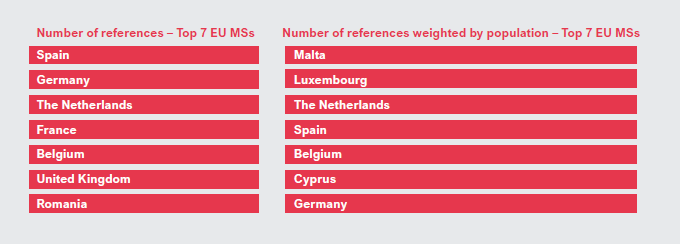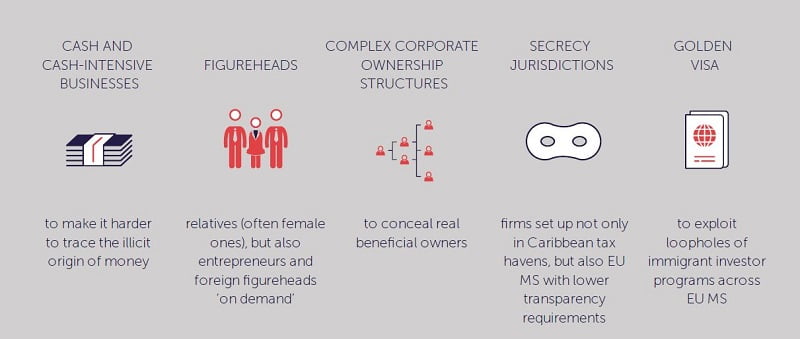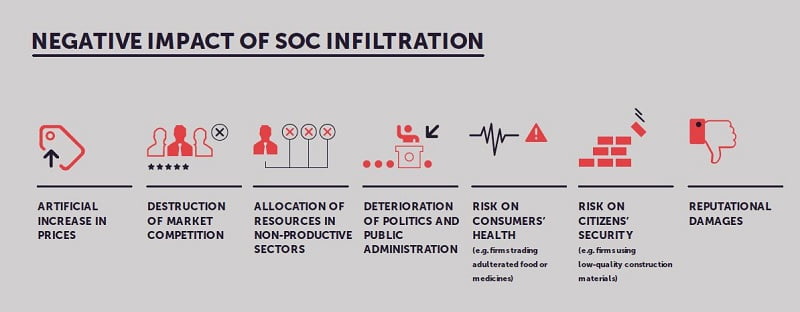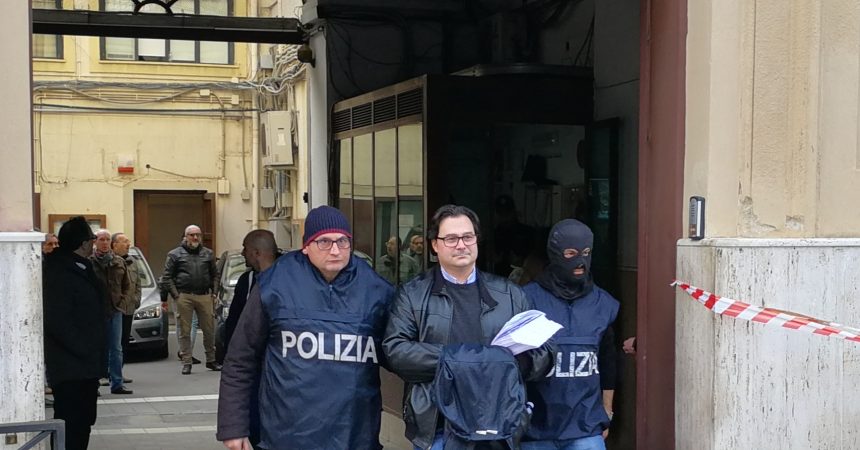Malta is the country with the highest number of references (per capita) in Italian anti-mafia police reports on the mob’s activities abroad, according to a report mapping the presence of the Italian mafia in other countries.
The systematic mapping of the presence of the Italian mafia in foreign countries was conducted by Transcrime using the references for foreign countries included in the annual reports of the Italian Anti-mafia Prosecutors’ office (DNA) and in the half-yearly reports of the Italian Anti-Mafia Police Directorate (DIA).
Coverage of the DIA/DNA reports between 2000 and 2016 provide a representation of where mafias are active, what they are doing and for what purpose.
While Spain, Germany and the Netherlands rank highest in terms of the number of mentions in the reports analysed, Malta, Luxembourg and the Netherlands rank higher if the number of references is weighted by the local population.
The report also states that Malta is a destination for Italian mafia criminals on the run (latitanti).

The report highlights the fact that Malta’s strategic position in the middle of the Mediterranean makes the country a potential hub for organised crime involved in a variety of illicit trafficking routes: drugs, firearms, oil-smuggling and human smuggling.
This feature, combined with Malta’s attractiveness in terms of favourable tax systems and business opportunities, may incentivise organised crime groups to establish companies in the country, the report states.
The evidence collected by the cross-border project seems to confirm this risk, with firms used to conceal stolen or smuggled goods or for laundering money, as done in the gaming industry by Italian mafia.
The following risk factors may also make Malta vulnerable to serious and organised crime (SOC) infiltration:
• Lack of limits on cash purchases
• Higher financial secrecy than the EU average, according to one of the most acknowledged sources in this field (Tax Justice Network, 2018)
• High complexity of Maltese businesses’ ownership structure (the most complex in Europe)
• Relatively high volume of links with opaque jurisdictions, with one of the highest percentages of shareholders listed in the EU ‘Blacklist’ and ‘Grey list’ of non-cooperative tax countries
• Golden Visas schemes that may facilitate the injection of illicit money from Third Country Nationals (especially Russian Organised Crime Groups)
• Favourable support schemes, including tax incentives, for companies willing to relocate to Malta, especially in the gaming industry

The report refers to Golden Visas (or cash for passport schemes such as Malta’s) as one of the main methods used the infiltration of serious and organised crime.
“Such schemes offers criminals the opportunity to evade law enforcement and prosecution in their home country, clean up their reputation, and enable the free movement and further investments in EU countries,” the publication states, adding that various media investigations and policy reports have reported evidence of dubious investments by Chinese and Russian individuals facilitated by golden visa schemes.
The business sector with the most evidence of infiltration of organised crime – is the gambling/gaming industry, in all its subsectors: casinos, bingo games, video lottery (VLT) and slot machine stalls, and online gaming websites.
Gaming is a cash-intensive industry, and IT developments are expanding the business opportunities as well as the vulnerabilities, given the possibility for criminals to set up servers in secrecy jurisdictions that make it difficult for law enforcement agencies to trace online transactions.
“The combination of IT, financial secrecy and growing demand makes this sector very attractive for organised crime groups,” the report notes.
Malta has one of the largest number of business-to-business gaming licences in the EU. The report refers to investigations that exposed the infiltration of the Italian mafia in the sector in Malta. One such case was an organised crime group linked to the ’Ndrangheta clan that established a platform providing illegal online gambling services through a complex network of gaming companies established in Italy and in several other EU Member States, including Malta, Romania, Austria and Spain.
“Malta, in particular, served as a business hub for the whole organisation,” the report states.

The Transcrime publication also details the oil smuggling scandal involving “a criminal network composed of Maltese individuals, members of Libyan militias and with links with Italian Cosa Nostra” that used a number of legal firms (based in various countries, including Libya, Malta and Italy) active in the shipping, fishing and wholesale trade sectors to provide legal fronts for illicit activities, in particular the smuggling of stolen oil products from North Africa to Europe.
They used forged documents provided by public officials who stated that the oil was coming from Saudi Arabia. The use of these fake certificates, together with the mixing of the gasoline with Italian petroleum, allowed them to export and transport the goods to several ports in Southern Europe.
The use of countries with low levels of financial and corporate transparency for organised crime or money laundering purposes is well known. Organised crime infiltrates businesses established in these jurisdictions to make it harder to identify the actual (criminal) beneficial owner.

The report notes a preference for ‘on-shore’ European jurisdictions that require less corporate and financial transparency. These are, for example, Eastern Europe (particularly Romania, Hungary, Slovakia and the Czech Republic), Cyprus, Malta and United Kingdom (in particular if including European crown dependencies such as Jersey, Guernsey and the Isle of Man).
All these countries have laxer corporate transparency requirements than the EU average and are geographically and culturally closer than off-shore jurisdictions, with similar languages, regulations and (often) the same currency.
The MORE project is co-funded by the European Commission. Participants included Transcrime (lead partner, Italy); SWP (co-partner, Germany); Brå (co-partner, Sweden); BKA (associate partner, Germany); EUROPOL (associate partner); MININT (associate partner, Italy).
Read the full report.












